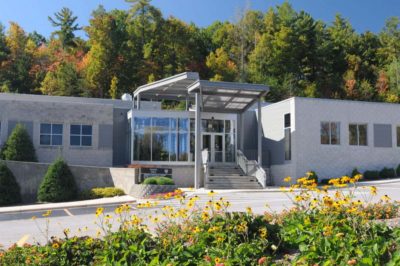

MerleFest, a music festival held this time each year for more than 30 years, is one of the best untold stories in North Carolina.
Even if you have heard of MerleFest, chances are you don’t know it is held at a community college and you don’t know “B” Townes.
The story begins with a horticulture instructor at Wilkes Community College, located in the foothills of North Carolina.
EdNC’s Robert Kinlaw has been working on a documentary about MerleFest. Due to COVID-19, the festival and the documentary are on hold until 2021.
In the meantime, this story fits in nicely with EdNC’s community college faculty profiles.
The gardener and his gardens
“I needed plants. I needed gardens. I needed live labs.”
— B Townes
Townes was a gardener who started teaching in 1973. By the fall of 1987, he had developed a master plan for Wilkes Community College with a vision for 15 different gardens. The gardens would serve as outdoor laboratories for his horticulture students.
Local leaders Ala Sue Wyke and Bill Young suggested that Townes talk to Doc Watson. Watson was a blind, Grammy-award-winning musician and songwriter who lived in Deep Gap, just up the road from the college. Wyke and Young thought Watson might be willing to play a concert to raise money for one of the gardens — the garden of the senses.
When a “one man, one night, one time” show didn’t work out because the venue wasn’t available, RosaLee, Watson’s wife, said to Townes, “don’t you fret, youngin, put it off ’til spring, and you can have a festival.”
“What’s a festival,” the gardener asked.
“This is a horticulture teacher who knows nothing about music,” Townes tells me, talking about himself. “The word ‘logistics’ did not exist in my mind.”
Nevertheless, on Saturday, April 30, and Sunday, May 1, in 1988, Townes found himself hosting the first festival featuring many of Doc’s friends on two stages with all the proceeds going to the Eddy Merle Watson Memorial Garden for the Senses. Merle, Watson’s son, had passed away in 1985.
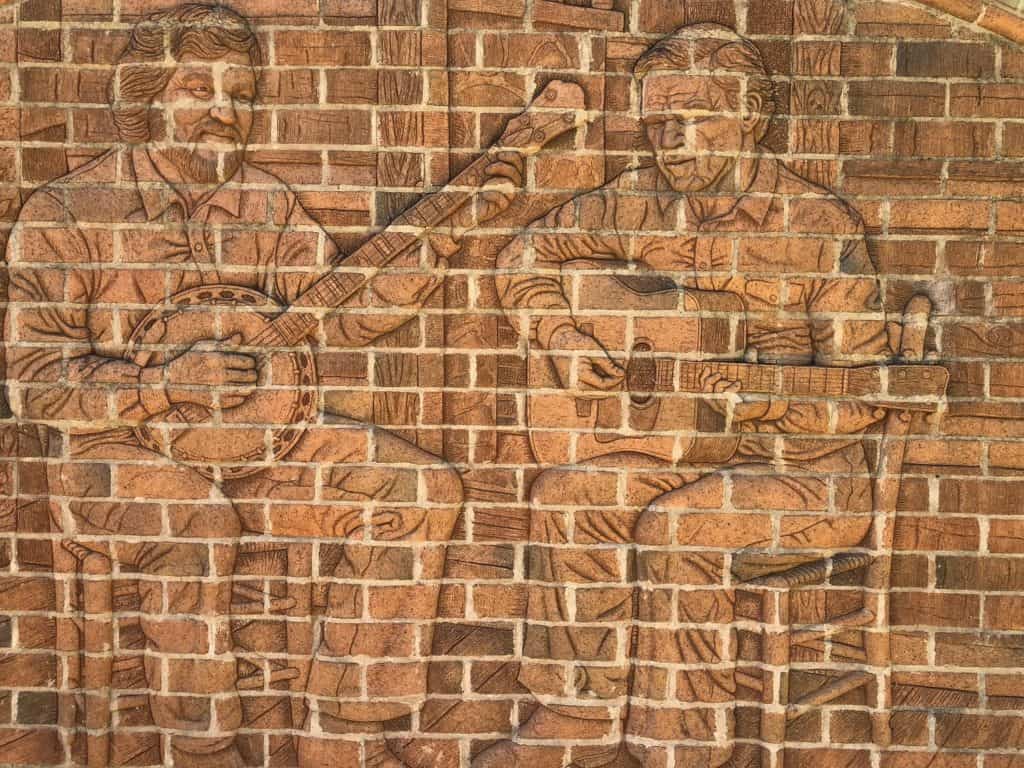

Townes, remembering the first festival, says there was no plan, no contracts, no schedule. Ralph Rinzler, who curated music for the Smithsonian and was on hand to advise on staging the festival, told Townes not to worry about the sold-out event.
“Sometime during the weekend it will take on a life of its own,” Townes recalls Rinzler saying.
MerleFest lives on year after year, according to Townes, because of a few core values. It’s family first. Children 12 and under are free. There is music of all kinds because Watson believed in “traditional plus” — the traditional music of Appalachia plus whatever else Watson wanted, including blues, folk, and rockabilly. There are indoor and outdoor venues. And alcohol, drugs, and tobacco are not allowed. This all amounts to a culture of what Townes describes as “a homecoming.”
Homecoming is the right word. Back stage, I met Karen Norris, Merle’s daughter and Doc’s granddaughter, with her family. Jeff Cox, the president of Wilkes Community College, and I ran into Tom Smith, Cox’s eighth grade teacher and high school football coach. Musicians like Andrew Marlin of Mandolin Orange make it a priority to show up year after year.
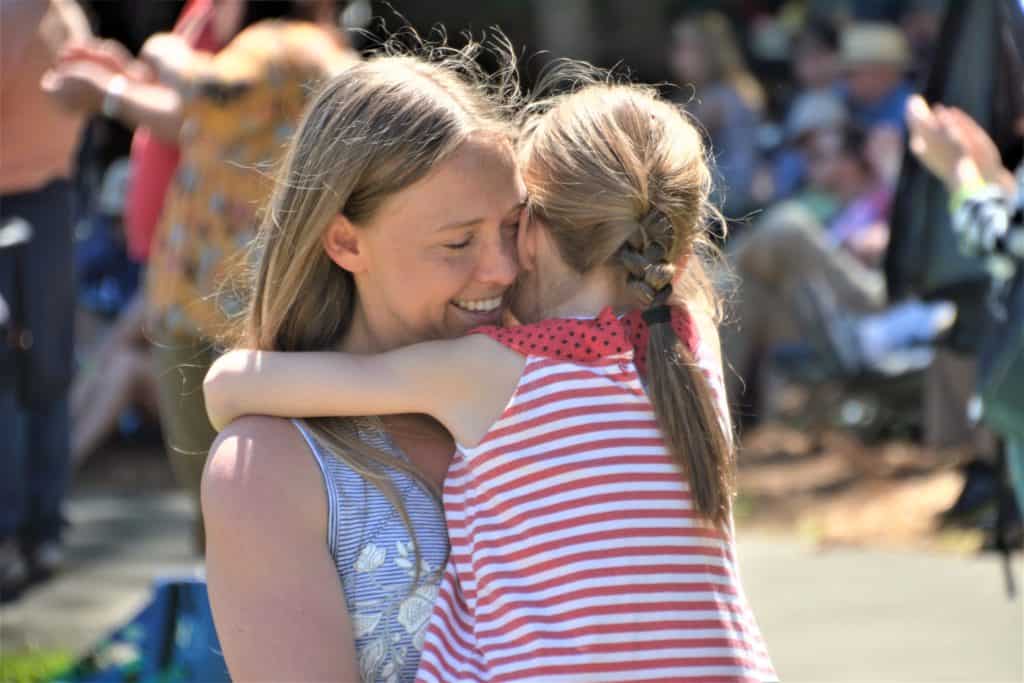

“In our name, Wilkes Community College, I always said the word community was bigger than the word college.”
— B Townes
The festival grew over time from two days to three days to four days, and it now includes more than 100 artists on 13 stages, as well as outreach in the surrounding schools and communities.
In 2019, according to an executive summary of the event, 73,336 people attended MerleFest from 48 states and 10 countries. The regional impact was more than $12 million. More than 80 civic, community, and institutional partners participated, earning an estimated $479,178.
MerleFest has 62,106 likes on Facebook and 17,095 followers on Twitter.
The festival is produced by the Wilkes Community College Foundation, a nonprofit. Allison Phillips is the executive director of the foundation, and Ted Hagaman is the director of MerleFest. The net revenue benefits the students of Wilkes Community College through scholarships, support for clubs, capital improvements, and general funding. The gardens are now fully endowed.
But here is what makes Townes proud.
“Exposing kids to the music in the schools and at the festival.”
“It’s a teaching experience. It’s a learning experience.”
“Preserving the music, learning the music, taking the music to different level.”
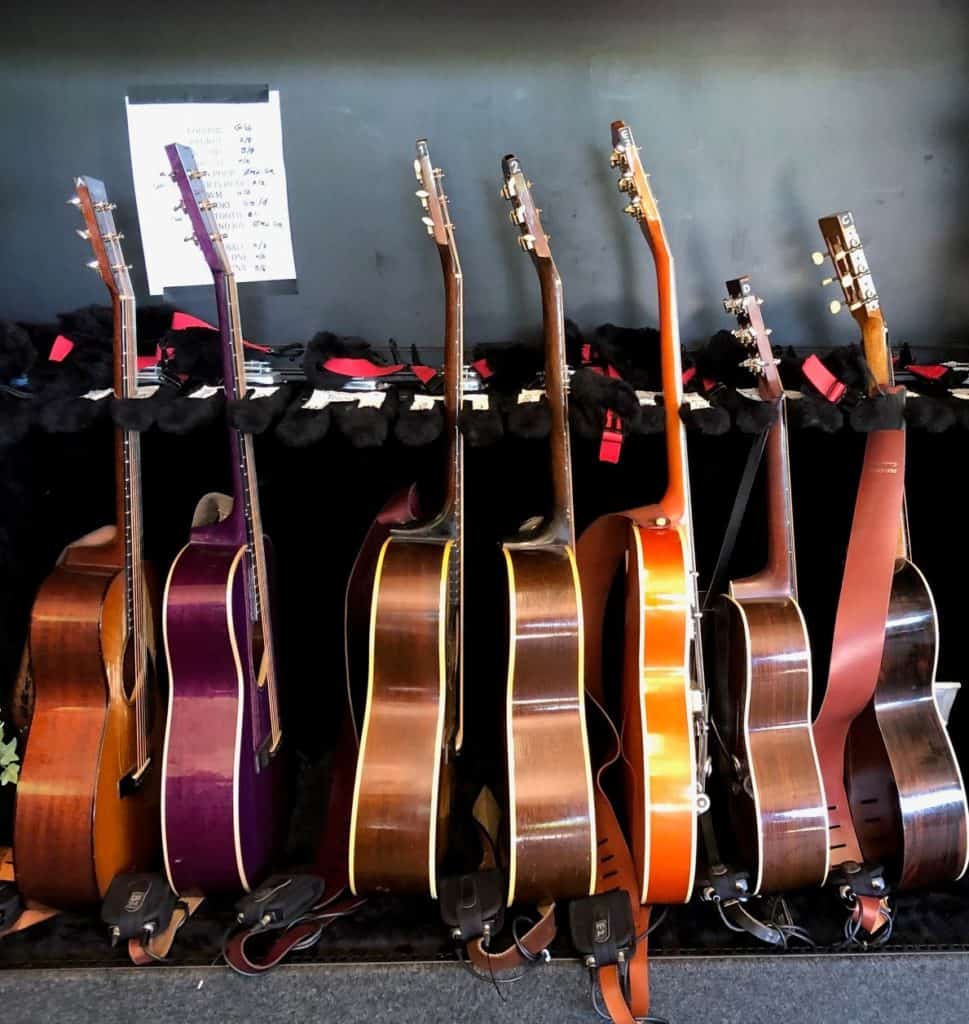

“MerleFest,” Townes says, “is a teaching lab from the local community to the international community.” In fact, the definition now in some sources of Americana music is “the music of MerleFest.”
“I take pride in knowing that we had an influence on a whole genre of music.”
— B Townes
Townes has watched any number of musicians get their start at MerleFest. Now, as he wonders who will be the next Gillian Welch coming off the stage, he looks the artists in the eye and tells them, “Don’t forget who you are. There’s managers, agents, the press, the public. They all want you to be different. Don’t forget who you are.”
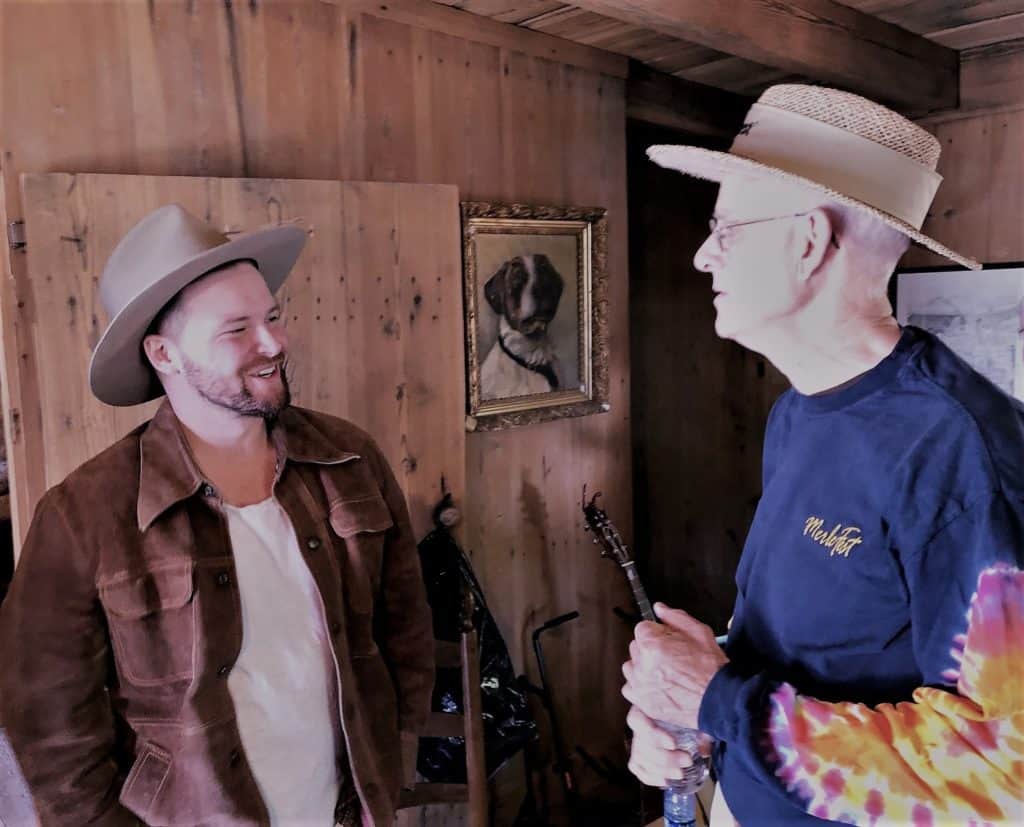

For all these years, Townes has remembered what Rinzler said and dreamed of a moment when he could sit down, relax, and enjoy the music. That time is now.
“I’ve retired. Doc’s dead,” says Townes. “It’s taken on a life of its own.”
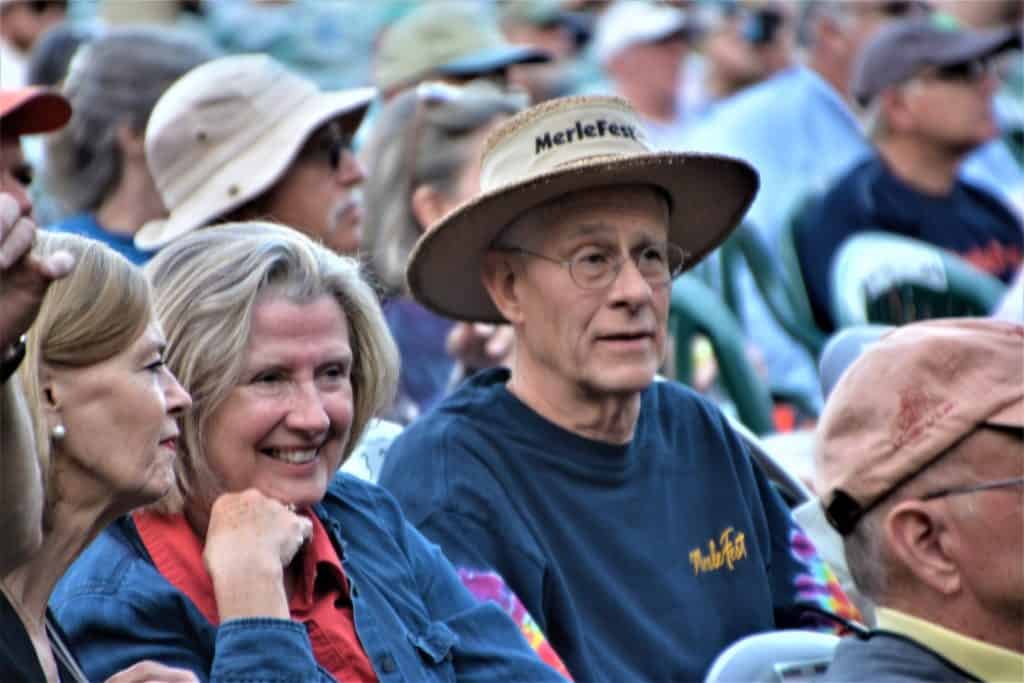

MerleFest will be held April 29-May 2, 2021.
Go. Listen. And while you are there, take a look at B’s gardens.


